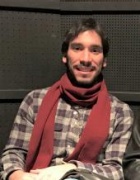Economics Seminar Series
Rafael Alfena Zago, University of Oklahoma
Let There Be Light! Improved Public Lighting and Nighttime Crime Evidence from Brazil

Rafael Alfena Zago
This paper studies a recent infrastructure improvement program in São Paulo City, Brazil, to estimate the causal impact of improved public lighting on nighttime crime. Exploiting the phased roll-out of the program - as well as its unexpected abandonment - to alleviate selection bias, I find that lighting improvements reduce nighttime crime and “non-homicide” crimes, a measure that includes property and violent crimes, both in the districts that received lights as well as in neighboring districts. Yet, there is some evidence that daytime crime rises as a result of the improved lighting, possibly due to an increase in total economic activity in the areas that received the lamps. Overall, it appears that better public lighting is an important catalyst for reducing crime in dense urban areas in middle-income countries.
DATE: Thursday, March 31, 2022
TIME: 1:30-2:30 p.m.
LOCATION: Fronczak 444
VITAL week will be taking place from March 27th-31st here at the University at Buffalo. VITAL seeks to contribute to the growth of faculty from traditionally underrepresented populations in the United States, particularly from Indigenous, African American/Black, and Hispanic/Latinx backgrounds. VITAL scholars have the opportunity to present their work, engage with UB faculty and students, meet other scholars in the program, and experience the region’s many offerings